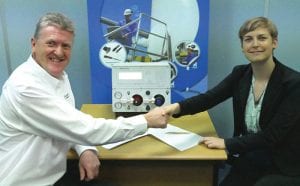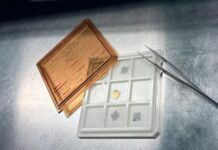The German manufacturer of gas analysers SK Elektronik (SKE), has appointed Quantitech as its exclusive UK distributor. SKE is a global provider of gas analysers based on the principle of Flame Ionisation Detection (FID). Key applications for the company’s analysers include emissions monitoring, process gas monitoring, and the monitoring of abatement efficiency and emissions from wastewater treatment.

Quantitech MD Ken Roberts said SKE enjoyed “an excellent reputation for quality and reliability”, one of three reasons he picked out for underlining the importance of the agreement. Second was the fact that the firm’s core FID technology is available in a number of formats to suit a wide variety of applications. Thirdly, these instruments have performance certification – MCERTS for all versions and ATEX for certain models.
FID analysers provide readings of total organic carbon (TOC), and one of the major strengths of the SKE instruments is seemingly their ability to measure TOC across an extraordinarily wide range of concentrations – from ppm to Vol%. The SKE range includes both portable and fixed continuous extractive gas analysers, in addition to an IP rated in-situ model which is mounted directly on a stack or duct. There is a Field Housing option for mounting in a convenient location on a wall close to the sampling point; reducing heated line cost and the cost of integration into a cabinet.
In addition to a choice of models, customers are also able to select from a number of options including non-nethane hydrocarbon measurement, internal data logging, heated sample line length, and others.
Explaining the importance of the agreement with SKE, Ken Roberts said: “Quantitech’s MCERTS approved FTIR analysers are able to measure TOC by integrating measurements for known organic compounds. However, FID is the standard method for the measurement of TOC in the emissions of regulated processes, so in addition to stand-alone FID analysers, we will also offer the SKE FID technology as part of our integrated continuous emissions monitoring systems (CEMS).”







